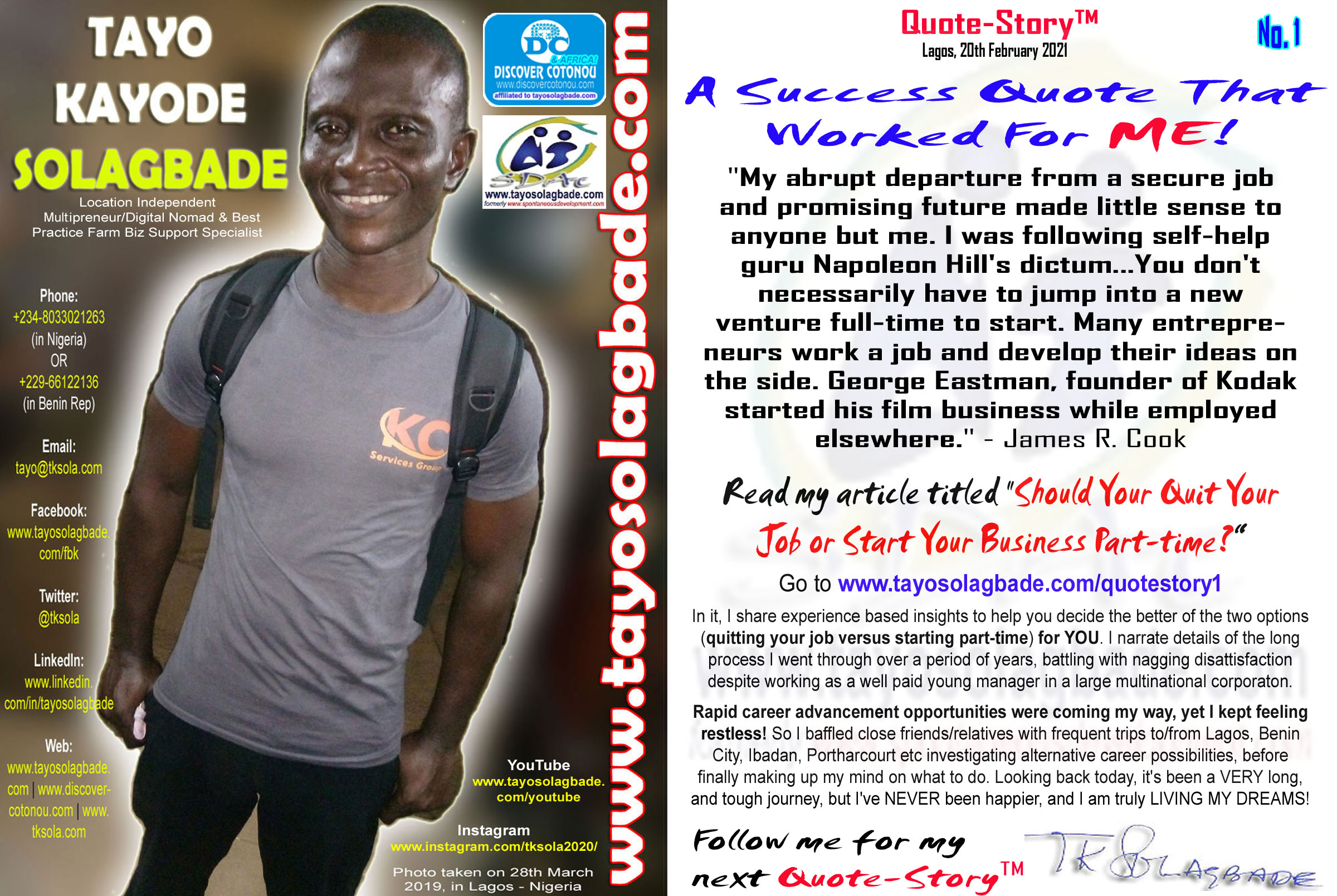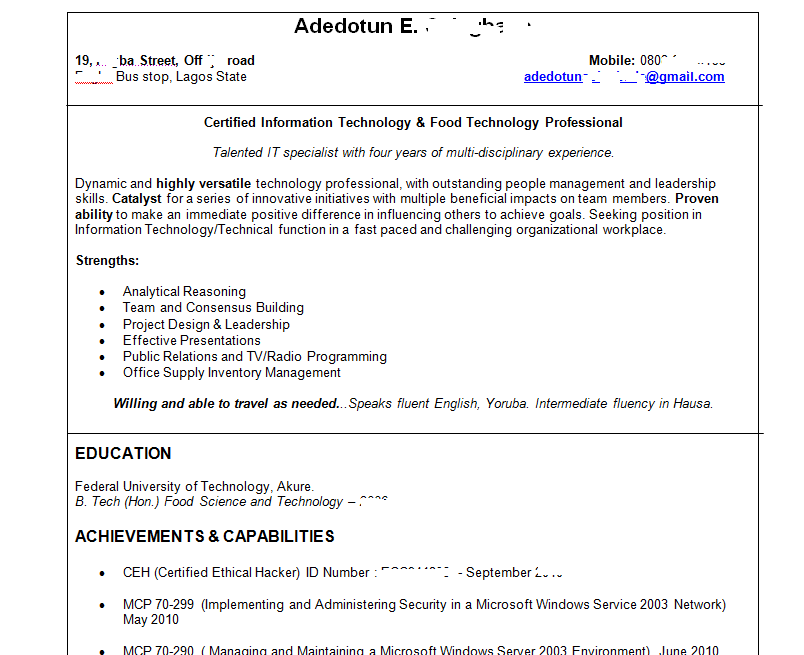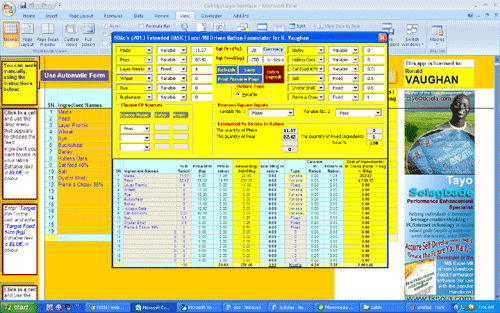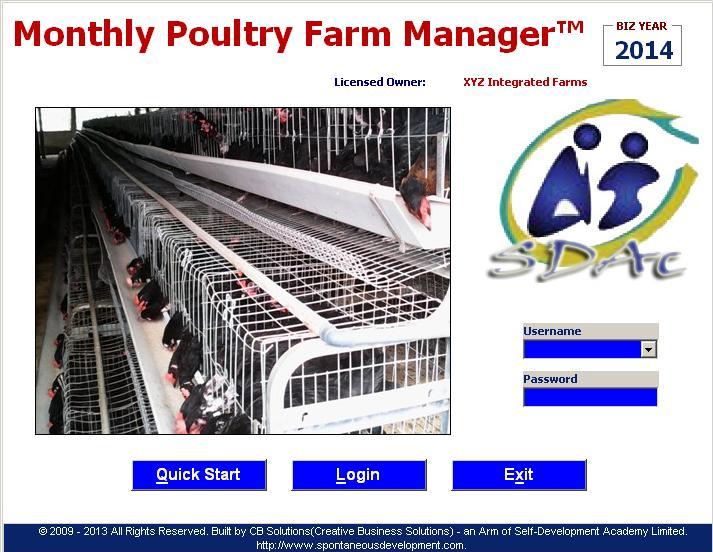Quick Take Away
This article recounts some entertaining but true stories, about how I’ve had to go the extra mile, many times, to earn the trust of prospective buyers of my feed formulation software and handbook over the years, to get where I am today.
The fear of getting scammed can be a real impediment to making sales to locals and foreigners, as a Nigerian living in Nigeria.
You’ll enjoy reading this, even as you gain valuable insights!
Introduction
When trust is lacking, smooth functioning of socioeconomic activities will be disrupted.
Think about the things you take for granted daily. For instance the money you save in your bank.
You do so because you “trust” that the bank’s personnel will always do their jobs right, so you never lose money.
What If A Buyer Sends Payment And It Does Not Reach You (On Time)
But we all know that things can – and do – go wrong sometimes.
This could happen when someone accidentally posts money sent to your account by a buyer into the wrong account.
You consequently find yourself telling the buyer that you have not received the alert for the payment she says she’s made.
That can be quite embarassing and disturbing, for both parties.
I should know. Something like that happened to me a few months ago.
And if you know anything about the “trust status” that prevails in the society I operate in, then I’m sure you can imagine how the man who sent the N13,000 ($80 approx), from out of state in Ibadan, to me in Lagos, must have hounded me by phone and email!
I took no offense though, because I understood. Out here, trust is a bit of a scarce commodity.
Majority of such transactions have been known to end with someone receiving requested payment and then failing to deliver the promised product or service. Or sometimes he could deliver a substandard product or service.
We’re supposed to be in the electronic age, where payment processing happens in an instant.
But I’m “fortunate” (yes – that’s how I like to see it!) to live and work in a society that’s yet to be fully integrated into that age in real time for now.
So in serving local buyers, I still have to offer mainly traditional payment options (but for international buyers I use globally accepted and more convenient online platforms).
It’s not that local electronic payment systems don’t exist. They do. However, the poor level of trust (that word again!) that persists out here makes most people wary of using anything they consider not to be tried and tested.
And can you blame them? Of course not!
The various fraud related crises that have recently rocked the stock exchange and banking sector have not helped matters in this regard, as you can imagine 
It Happens All Over The World, But It’s The Frequency And Scale Of Occurrence That Differs From Society To Society
Yes, it does happen everywhere.
No part of the world can lay exclusive claim to having good people.
Bad people can be found in all societies.
Even the holy books studied by the religious feature anecdotes about them.
It is however the presence of such naughty people in large numbers, and the resultant excessive frequency of their “trust destroying” activities that raises cause for concern.
One Almost Safe Medium Of Operation For Scam Artists
Once bad people discover a place exists where they can indulge without inhibition in their negative habits, they’ll naturally tend to congregate there.
And that’s why one place people can readily get “duped” or “scammed” is online, on the web.
The attributes that make the Internet such a powerful instrument for positive business and societal advancement, are the same ones that make it a potent weapon in the hands of dishonest and fraudulent people.
Therefore if you want to successfully use the web for personal or business purposes, your ability to inspire TRUST in the minds of those you relate with, matters quite a lot.
These days, so many people make false claims about personal achievements in order to sell their products and services. It’s so difficult to know who’s telling the truth.
Even in face to face situations the same problem can rear its ugly head. But it’s online that it really seems to proliferate.
My Question To YOU: Are You Worthy of The Trust of Others?
Can those you relate with take you for your words?
Do you deliver what you promise, no matter what?
Most honest people would probably feel offended by the above questions.
For them, this would amount to having their integrity questioned.
I can relate to that. I would feel the same way too.
Some True Stories About How A Lack Of Trust Can Hamper Business & Societal Progress
I had my integrity rudely and painfully called to question just this morning. It was during a phone conversation with a young man – Basambo Abdulraheem – who had visited my website.
He had asked for my feed formulation handbook in the web contact form message he originally sent in.
When we spoke on phone and I mentioned my promo offer (for past enquirers) of the handbook bundled with the software for N12,500 instead of the regular N18,000 price, he got interested.
After I told him the required terms and mode of payment, he suddenly balked, saying:
“But you know I’m in Ilorin, and you’re in Lagos. How do I get the bundle after I’ve paid into your account?”
I replied that most buyers (from various parts of the country) had received their personalised versions of the software and handbook, as email attachments.
I noted that only Ben Oshionya (who was based on the outskirts of Portharcourt) had – in 2008 – paid to have the printed and spiral bound handbook (and a CD containing the software and PDF handbook version) delivered to him by hand.
Fortunately, a young friend of mine (Ebenezer Oloyede), had been headed back to University of Portharcout that weekend.
This saved Ben from having to pay extra for courier delivery. In addition, Ebenezer was familiar with my Excel software and was able to show Ben how to use it.
Despite the above long winded explanation, Basambo was still not convinced. And he made that fact clear by saying:
“Hmm, but you know this is Nigeria now. How can I be sure you will send it?”
I felt like a bucket of cold water had been dumped over me.
Without mincing words and despite my efforts to supply what I considered proof, this guy was calling my integrity to question!
Initially I felt annoyed. But I soon calmed down knowing he had every right to be skeptical. Afterall he had no reliable means of verifying any of my claims.
To go ahead and pay, he would have to take what amounted to a massive leap of faith, like past buyers had done.
But not everyone can however get to that level of conviction easily. Especially if they feel the money they have to part with is substantial.
So I supplied additional information he requested via SMS, with my best wishes.
Maybe in the near future, Basambo Abdulraheem will get convinced enough to take that leap of faith 
Even A Cameroonian Neighbour Got Cold Feet At The Last Minute
Arnold Epanty from next door in Buea, Cameroon exchanged a series of emails with me to get payment details to buy my handbook.
We’d agreed to use Western Union. When the day came however, the poor chap got cold feet (I think).
My email follow ups yielded no responses.
Interestingly, he’s stayed subscribed to my mailing list. So who knows – maybe one day he’ll return to complete his purchase…
…just like the next gentleman I describe below did, 3 years after walking away from the same transaction!
A Prospective Buyer From Ibadan Goes Away, Then Returns Over 3 Years Later, To Buy!
Once again the problem was a severe lack of trust.
Here’s how it happened:
When Oladipo Mann first phoned me about buying my handbook and software in 2009, he was not comfortable with the fact that I told him I worked from home, when he asked where my office was located in Lagos.
You see Dipo was calling from Ibadan, in Oyo state where he lived and worked.
In asking for my office address, his purpose was to use the knowledge that I had one, to reassure himself that I ran a traceable operation.
So when I said I did not use an office, he bluntly announced that if that was the case, he could not confidently pay money into my account from Ibadan.
I assured him that I understood his fears, and advised him to go with his gut instincts, noting that I would be available if/when he chose to return.
Now, what happened next is interesting.
Persons who submit enquiries via my website are told to agree to have their email addresses added to my mailing list.
As a result of the above Dipo began receiving my monthly Self-Development Digest newsletter (which this blog replaced this year), in addition to my periodic email updates in which I announced latest articles etc.
One day, sometime in August this year, after I sent out an email broadcast announcing the latest of my guest posts published on Africabusinesscommunities.com, I got an email from Dipo asking me to send him my account details, so he could make payment for the software and handbook bundle.
When I saw his name in the email, I immediately recognised it, and wondered what had suddenly made him decide it was safe to send me money – which was now even a larger amount than we had discussed over 3 years before (I had since raised my prices for both items).
I replied his email by asking him to phone me. When we spoke, I teased him about his decision to return to make payment.
He gave what amounted to the same “excuse” that Basambo Abdulraheem gave i.e “You know anything can happen in Nigeria”!
Today, Dipo’s flattering rating and testimonial can be seen and read on the sales page for my Feed Formulation Handbook in my online store –here.
It Took A Phone Conversation With A Past Buyer To Convince This Kano Based Prospect To Make Payment
In a previous post, I mentioned that Yakubu Ibrahim (who runs a poultry feed mill in Kano state) only went on to send payment AFTER I had given him the phone number to speak with Bello Hassan, a buyer from last November, who owns a farm in Niger state.
I still recall getting Yakubu’s SMS which read:
“I talk(ed) to Bello. I will pay tomorrow by God’s grace.”
All he apparently needed was the reassurance that I could be trusted to deliver.
Now, I could have given him any other past buyer’s phone number to call.
But knowing that Bello Hassan hailed from the north, like Yakubu, and that he would probably also speak to him in Hausa language, made me choose Bello.
Without meaning to brag, the fact that Bello let me give out his mobile number to Yakubu, and then went on to take the call days later, is proof that I enjoy great trust with Bello.
To get an idea of why that is so, read the excerpts (on this BLOG)of my responses to many queries Bello sent me, after buying my software and handbook in 2011.
In my usual manner, I ensured I went the extra mile to meet his needs.
And he acknowledged my efforts by eventually writing to say:
“Thanks Tayo. I’m quite satisfied with your answers to my questions.”
Little wonder that he had no difficulty recommending me to Yakubu one year later, when I contacted him.
That’s the power of earned trust!
A Phrase That Is Reflective Of Bad Experiences Those Who Use It Have Had
I refer here to the “anything can happen” phrase used by people like Basambo when they’re scared of getting scammed…
This naturally informs their attitude towards taking the risk of sending payments on mere “trust”, resulting in a huge “trust-gap” that prevents honest business operations from taking place smoothly!
The consequent outcome of the above is stunted progress and development in the society where such a situation persists.
That’s why Nigeria currently suffers the indignity of being locked out from using online payment platforms like Paypal.
Even our banks’ Mastercard and Visa debit cards are accepted on limited websites online.
For instance, I own a GT Bank naira denominated debit Mastercard, which works well with my Resellerclub.com account for my domains and hosting reselling business.
But for renewal of the hosting for this – my flagship website – with hostgator.com, my UK based brother-in-law has to use his credit card or paypal account to effect payment.
Why? Because hostgator’s payment processor rejects my GT Bank card!
And they’ve advised me that there’s nothing they can do, as my card apparently does not meet the minimum requirements.
The trust element is greatly lacking where the self proclaimed giant of Africa is concerned!
To Boost Trust In Your Society, Start By Being Trustworthy Yourself
Sometimes it’s not dishonesty or greed that leads a person to under deliver when others choose to trust him to deliver what they send payment for.
Incompetence can cause that to happen too.
Therefore don’t offer products or services you are not competent to deliver.
And for those that you have the capacity to handle, resolve never to be found wanting.
Aim to go the extra mile where necessary (but within reason and without going overboard), to satisfy those who give you their trust by paying to get your products or services.
One example: As I type this post, I’m putting finishing touches to a specially prepared PDF userguide and video tutorial to be sent to Yakub Ibrahim – in Kano – via email.
I got him to send his own list of feed ingredients, with corresponding prices and nutrient values, so I could use them in creating those custom learning resources for him.
This is in fulfillment of the promise I made to support him till he gets used to working with the software.
Note that he made 100% payment nearly 2 weeks ago, and I already sent him the package with the generic user guide.
So it’s not like I’m looking forward to some extra payment.
And that’s the way it should be!
Lesson From A “Real Man Of Faith” Who Sent Payment From The Other End Of The World, With A Bucket Load Of Trust!
Ronald V (surname restricted for privacy), a Canadian gentleman recently purchased the Ration formulator from me, by sending the money via Paypal.
Today we’ve linked up on Google+ over 3 weeks after he sent me the payment.
And we continue to exchange emails as he puts the Ration Formulator to use for preparing feed for animals on the large farm he oversees.
Being from outside Africa, one would naturally imagine he would have had more reason to be skeptical about sending money to this end.
I have no idea what background checks Ronald conducted before calling to speak with me on phone that day.
But suffice to say that he made it clear he wanted the Ration Formulator, and that he was aware I was based in Nigeria – and knew enough about the risks involved…
“What a man of faith!”, I thought to myself at the time. (Please note that I use the word “faith” in a strictly non-religious sense here. The dictionary meaning and interpretation therefore applies.)
Imagine my surprise a few days later when in response to my query about the acronym he typed into my website request form’s field for “Company”, he revealed it to be the name of a large religious group, in which he functions as a priest!
And for effect, he signed off THAT email with “God bless you” and his official title i.e. “Father Ronald” 
What an interesting revelation that was. A real life priest had delivered a powerful lesson on how to trust with faith!
That’s an example worth emulating by the rest of us.
By way of interest, my recent blog post true story on how I had to battle against multiple misfortunes before I could deliver the Excel ration formulator to Ronald will probably make you laugh.
If I did not know better, I would have said some evil forces conspired to try and stop me from fulfilling that order within the 24 hours I promised. Read below, to see what I mean!
You can read it: here.
End Of Year Promo Offer
This offer will remain open until MDT of 15th January 2013.
I offer you (or others you know) my Automated MS Excel Feed Formulation software, bundled with my popular feed formulation handbook at a promotional discount. See details below:
1. Watch my video demostration for the software on my Youtube channel (click)
2. DETAILED PDF USER GUIDE FOR THE Software can be downloaded from here
3. The sofware price is N10k.
But in the Xmas spirit, if you buy on or before the deadline, I’ll send you my fully printable 70 page Feed formulation handbook PDF for N4k instead of N8k (see it on sale for $82 approx. at the online store.)
So, instead of paying N18k, you get to pay N14k to buy both the software and handbook – saving N4,000.
UPDATE(14th Dec. 2012 at 10.42a.m Nigerian time): Pay N10,500 and get the bundle!
My attention has just been drawn to the fact that last year’s bundled offer price of N10,500 is what still appears on the FAQ/sales page here!
I have no idea what went wrong as I vividly recall updating that page before announcing this year’s N14,000 offer.
In light of the fact that many have already seen the lower offer, and as a gesture of goodwill, I’ve decided to bring the price down to N10,500.00.
All you need to do is subscribe to my mailing list to qualify to pay that special price.
Follow the instructions provided on the sales page..
You can call me on 234-803-302-1263.












![CLICK HERE TO DOWNLOAD PDF - Are People Who Achieve Success Luckier Than Those Who Don't? [Featuring TEDx Talk: “5 Major Reasons Why Religion Is No. 1 Cause of Poverty In Africa”]](http://tayosolagbade.com/sdnuggets/wp-content/uploads/2017/05/luck-religion-success3d.jpg) Click here to download FREE PDF and start reading…
Click here to download FREE PDF and start reading…